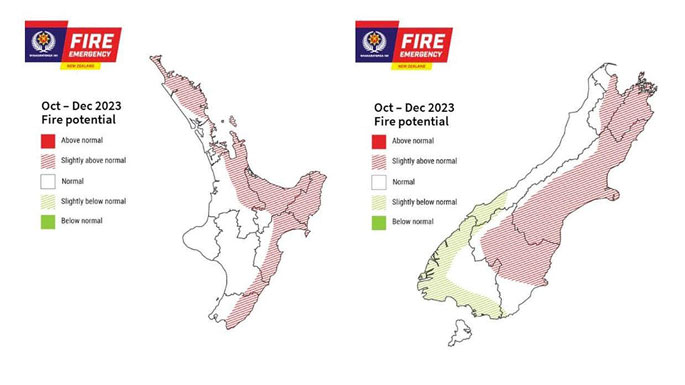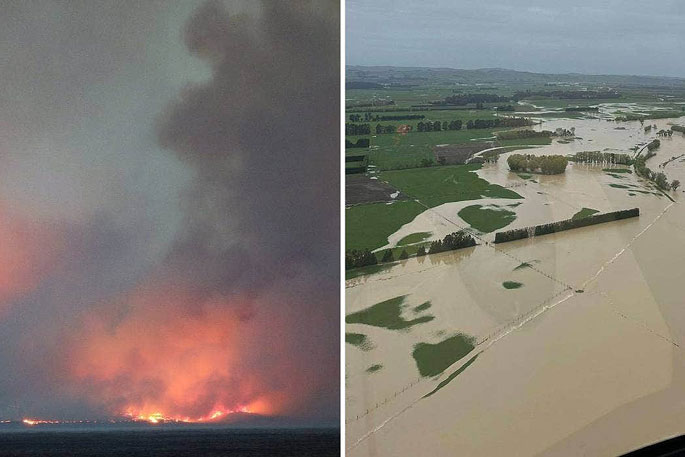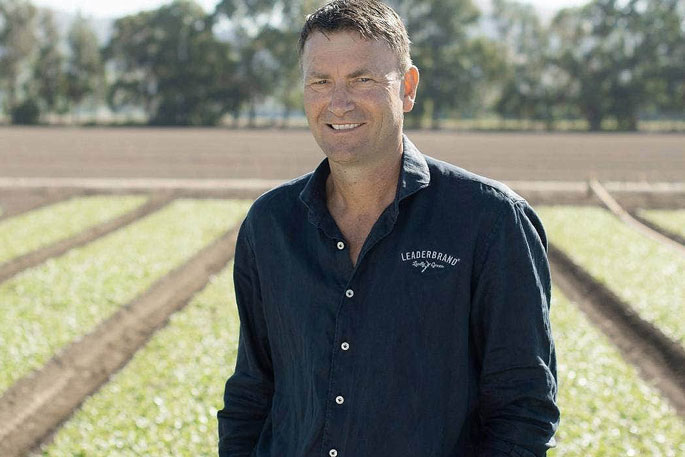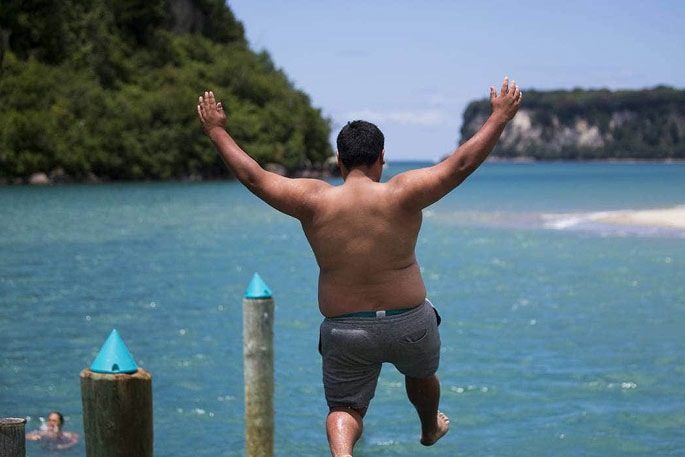Here comes the sun! Well, once the rain has moved off the country anyway.
This summer is heading to be Aotearoa’s hottest ever, say climate experts, boosting a tourism industry battered by the pandemic, flooding and cyclones.
There’s a darker side to record temperatures. Wildfire experts are preparing for “our worst season yet”, bringing in firefighters and tanker planes from Australia.
Hot dry weather could spark droughts, impacting farmers, food supply and prices.
Ants and cockroaches may be unwelcome summer house guests, with flies and mosquitoes in droves outside.
If you are heading to the beach, you may encounter more sharks this summer, with record marine temperatures in New Zealand.
Why will summer be hot?
It’s a combination of climate drivers, says Niwa meteorologist Tristan Meyers, but the main one is El Niño.
Not a beach burger bar, it’s Spanish for “little boy”, named hundreds of years ago by Peruvian fishermen to describe a weather phenomemon that causes warmer seas and atmosphere.
This year’s El Niño is no wee lad, more a monster bad boy, and will be the strongest in 80 years, says Meyers.
It’s the first El Niño since 2016, which was the earth’s hottest year ever.
The likelihood of El Niño was announced in July by the World Meteorological Organisation, warning of “temperature records and triggering more extreme heat”.
Australia declared an El Niño pattern this week, as more than 60 bush fires were already raging.
Niwa will make its El Niño announcement next week, says Meyers.
“Indicators do point to El Niño. We also look at another climate driver, the Indian Ocean Dipole. The combination of the two causes warm temperatures that we’re already seeing. Going into summer we could see more records in the high 30˚Cs.”
It seemed like summer had already started this week, with record September temperatures across the country. On Thursday, Wairoa soared to 29.6˚C in Wairoa, the highest September temperature ever recorded in the North Island.
Parts of the South Island also experienced their warmest September day ever with 28.2C in Otari, Canterbury.
 Areas in NZ with increased risk of fire (as at spring, will be updated for summer). Photo: Fire and Emergency NZ/Stuff.
Areas in NZ with increased risk of fire (as at spring, will be updated for summer). Photo: Fire and Emergency NZ/Stuff.
Increased fire risk
The current Indian Ocean dipole which is bringing westerly winds is as strong as it was in 2019, says Meyers, when it's a factor in Australia’s horrific “Black Summer” of fires that killed 33 people and scorched towns.
This year's fire threat in both Australia and New Zealand could be as bad, or worse, says Fire and Emergency’s NZ wildfire expert, Rory Renwick.
“There are indications it may well be much worse than normal.”
It's not just hot dry weather which was concerning fire services but winds, he says.
“The intensity of fires and how quickly they spread is likely to be greater.”
While fire services are always in a state of readiness, “a lot more has been going into this season”, he says.
“We’re talking to aircraft operators and other contractors and the Department of Conservation to make sure that everyone's trained and equipment ready. We’ve even had discussions with our Australian counterparts about sharing resources, particularly large air tankers, which we've never had a need for here before.”
People should not be complacent that rapid bushfires won’t happen here, he says.
“Parts of Otago and Highland Canterbury can have fire weather conditions that match the black summer fires of 2019 in Australia. Some of our fuels are incredibly flammable, some of the worst in the world.
“It doesn't need to be a big fire to be destructive. Mowing grass can start a fire in these conditions. If fire gets into shelter belts or vegetation near houses, it can destroy property and risk lives.”
Location-specific, live fire danger warnings of high, very high or extreme would be posted on MetService and social media channels.
Renwick strongly urges people to safeguard their homes and businesses following the service’s tips to reduce fire risk.
Having an escape plan is key with two preplanned routes and a meeting point, planning for young children and pets.
“Hopefully it doesn't come to that. But you might only have minutes to get out.”
 This week the South Island battled a fire, and then flooding, in the space of days. Photo: Stuff.
This week the South Island battled a fire, and then flooding, in the space of days. Photo: Stuff.
Drought and food prices
Agriculture analyst for Rabobank, Emma Higgins, says summer droughts could impact fruit and vegetable inflation, which had been declining significantly from 22 per cent in the year to June 2023 to 5.4 per cent in the year to August 2023, although prices were still elevated.
“Disruptive El Niño weather patterns run the risk of impacting production of locally grown food over the coming months – and could be a headwind to seeing cheaper prices for food at the checkout.”
Areas particularly susceptible to drought are Hawke’s Bay, Otago, Canterbury and Wiarapa, says Niwa’s Meyers.
Soil moisture levels in Hawke’s Bay are below typical levels for September, says Hawke’s Bay Regional Council scientist, Dr Kathleen Kozyniak, and council is warning farmers to prepare for “extremely dry conditions”.
Fed Farmers arable chairperson, David Birkett, says drought will affect supply and price across all crops.
“Spring sown crops such as peas and barley could suffer the most, as they are shallower and affected by moisture. Farmers with irrigation will need to plan what gets watered – and what they might lose.
 LeaderBrand chief executive Richard Burke said access to water is key for growers. Photo:Stuff.
LeaderBrand chief executive Richard Burke said access to water is key for growers. Photo:Stuff.
Chief executive of LeaderBrand Richard Burke says access to water is key.
“Thanks to constant rain over the last year, aquifers are currently full. Ideally, farmers across the country need more access to water storage and ease of rules around building dams.”
Flies? What’s the buzz?
A hot dry summer will bring an invasion of ants and cockroaches inside, says Dr Paul Craddock, entomologist and vice president of the Pest Management Association.
While the summer heat will initially bring an influx of flies and mosquitos outside, without much rain, they might decrease.
“Initially lots, but in ongoing heat you might see a reduction. Though there will still be the annoying ones around.
Your only protection might be a cork hat and a citronella candle, as pest control companies sre getting booked up, he says.
Sharks
An increase in shark attacks have been linked to El Niño in the past, in South Africa, with the theory that warmer waters attract more sharks to the coast.
International surfer Mark Healy recently attributed an increase in sharks and attacks in Hawaii to El Niño weather patterns, saying he has never seen so many.
New Zealand marine biologist Riley Elliott is researching why there has been an increase in great white sharks off the the Bay of Plenty and Coromandel in the last three years.
Tags track sharks’ movements, correlated to water temperature.
Evidence that warm water attracts sharks is inconclusive, he says, but he expects more shark encounters this summer. Only this week a great white was sighted in the Hauraki Gulf, he says.
”In a hot summer, people head to the beach and get in the water, so there will definitely be more sightings.”
El Niño was very productive biologically, he says.
”It blows wind offshore drawing up nutrient-rich water, creating a food chain that leads to sharks.”
People shouldn’t be put off hitting the surf.
“Attacks are rare, but understand it’s the sharks’ environment, not your playground.”
Elliott has applied to DOC for a permit to research great white sharks off Stewart Island.
“That’s had a big increase in temperatures around there, and that’s where the shark mums and dads are. What we see in the holiday hotspots are juveniles – although they can be 3m.”



8 comments
The Master
Posted on 25-09-2023 12:31 | By Ian Stevenson
Many things above are hypoed intentionally on a false narrative, that climate change exists?
here are a couple of interesting facts from Science (i.e. not the IPCC and anything related, that excludes any real science).
World wide.... just a few facts to consider: =
1 Ice levels/areas/volumes in the Artic and Antarctica have been increasing for many years. This despite Al Gore's 2009 prediction that the Artic would be free of ice by 2013.
2 The number of bush fires, acreage and so on are all down over the recent decades
3 Storms, serious storms - same scenario as fires.
4 Record temperatures on earth are in the 1930's... not recently
5 It was warmer in Roman times (say 250BC-250AD) than now
6 The CO2 levels now are almost the lowest ever on earth, in 4.6 billion years.
The Master
Posted on 25-09-2023 12:32 | By Ian Stevenson
The sharks are simply doing what sharks do, following the food. It is a consequence, not a cause... but is interesting none the less.
Overit
Posted on 25-09-2023 14:44 | By overit
Oh really, how do you predict that. Thats right you are geoengineering the climate.
Chemtrails everywhere.
We're SO very lucky
Posted on 25-09-2023 15:01 | By Let's get real
Living in a country that's absolutely devoted to the climate "crisis" nonsense. We won't be able to make a fire when the power goes out. Lack of water will reduce power generation of course and we'll need to light a fire to boil whatever water we can find. Do we water the crops in the paddocks or the paddocks for the livestock and to keep the golfers and punters entertained...? We need to hope that the wind isn't too strong or too weak, so that we can keep the lights on in the streets and the floodlights on for the stadia. A single nuclear power plant, North and South, would solve so many problems for our tiny dot on the map and nobody cares about the reducing issues surrounding nuclear power any more. So we won't be leading the world in stupidity any longer... Other than climate obsession.
They know this because
Posted on 25-09-2023 23:16 | By Mein Fuhrer
They've been bombarding the skies with their geoengineering chemicals in preparation for some Maui style DEW fires this summer, better paint your roof pale blue.
The Master
Posted on 26-09-2023 12:56 | By Ian Stevenson
To Overit
By looking at:- science/data/observations/facts. The IPCC latest report does have the same data, sort of, but then they use models (50-100+ of them). The models are widely off target, at best 300+%, worse when projecting backwards. Go read the IPCC report, it is 3,000 odd pages and heavy reading, but if you have a few clues then this applies....
1 Money from 195 countries...
2 Science data collected and reviewed by scientists on a ramdom-ish basis...
3 Money ex Govts pays for a desired answer....
4 Politicians review and approve the final reports
5 The media get hold of it, by this time the decisions/editorials are well and truly drifting away from the science.
This is blatantly obvious, simply reviewing the data behind the IPCC report and more , then following the trail since.
But its just lies Ian...
Posted on 26-09-2023 17:57 | By This Guy
Easy to deny the truth when you can just lie huh Ian? All of your information posted is just blatantly false and counter to all the research done by ACTUAL scientists... "Ice levels/areas/volumes in the Arctic and Antarctica have been increasing for many years" This is just flat out WRONG (like everything else you said) but maybe go read about the emperor penguins and their recent "catastrophic breeding failure" due to the record low levels of arctic sea ice... Although shouldn't be surprised at your flagrant dishonestly considering you've already been in a spot of trouble for "breaching code's of ethics" in the past...
@Let's get real
Posted on 27-09-2023 13:34 | By morepork
Whether there is a climate change under way or not, the fact is, it's getting hotter. We know very well that water will be rationed and people will be able to watch their lush lawns and gardens shrivel up and die (if not this year, then soon...). I agree with you about nuclear power. A single fusion power station on an unpopulated offshore island, would provide all of our power requirements for the next 200 years before, needing refuelling and without producing radioactive waste. Similarly, as I have stated many times, we could solve Tauranga's 60 million litre per day water requirement with a single desalinization plant for around $90 million which would pay for itself in 3 years. You can bet that neither of these otions will be implemented, or even investigated, because it isn't "what we've always done".
Leave a Comment
You must be logged in to make a comment.